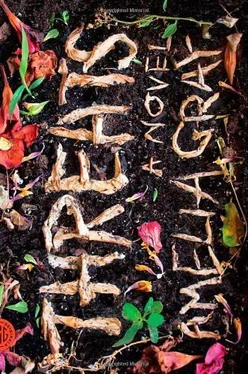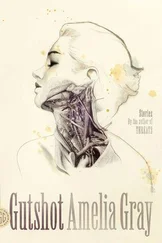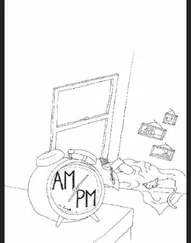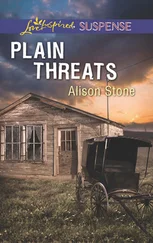DAVID HAD CARED for every tooth of the ones he loved. When he visited his mother, he brought his dental tools in a leather bag and performed a cursory exam with her lying down on a couch in the common area. He could wheedle and plead and get his father in for cleanings every eighteen to twenty months, but Franny kept her yearly appointment. Her teeth were the healthiest he had seen, including gum-model sets in brochures he displayed in the office. They looked and felt stronger than the resin models on the shelf. He would observe her X-rays after she left, experiencing the keen sense of pride one might feel with a child. He considered framing them in the office, but he knew that other patients would feel envy toward the perfect teeth and might even blame David’s expert care for the sugar and neglect that brought them in to begin with.
His father’s teeth were a model of such neglect. A lifetime of dental abandon had started early, when David’s grandmother claimed that toothpaste was an unnecessary and vulgar expense. No matter how advanced the dental water jets and waxed flosses and prescription pastes David pushed upon the man, his father’s teeth aged poorly with him. David used to watch his father breathing through his mouth in the chair by the window, cultivating scores of bacteria in the deepening crevices, parts per million untold, the invaders shoring up in preparation to go to work that night when the man would lay his obviously unbrushed mouth on the pillow, smacking his lips, saliva rushing forth and infusing the mouth with the moist warmth of an incubator, the perfect environment for a healthy population of ruin. “The dental profession is a farce of control,” he said when his son tried to show him the problems.
David had started to remove his father’s teeth at the beginning of his career, from when he took his first trained peek into his father’s mouth. That first tooth, a maxillary third, rotten through the root, a bruise on the X-ray. The hygienist leaned back in her chair and looked at David wordlessly, ticking the suction in the direction of the spot on the light box after David had already seen it, of course, the blemish an embarrassment on his young career, the father of a dental professional experiencing such advanced molar ruin. He cleared his appointments for the rest of the afternoon and performed the procedure immediately.
His father provided little input beyond what David suspected, which was that he didn’t want a metal rod in the jawbone, an exact copy replacing the rotten tooth. The man waved it off even when David told him it would last a lifetime. He reminded his son how old he was, cited the cost of titanium. “Decay comes for free,” he said. “Any further installation is vanity.” There would be no titanium, but David insisted on making a bridge for his father, placing the Novocain with a practiced hand, filing down each tooth on either side, making the impressions. He installed a flipper to take the place of the missing tooth while the bridge was being made. His hygienist handed off the tools and watched with her hands folded over her stomach. David’s gloved hand pulled back a dry tuck of skin at the corner of his father’s lip. His father’s eyes were closed for the duration. David saw the other problems in the mouth, years of accumulated calculus building like cedar shingles at the base of each tooth, imperfections despite regular cleanings, which could lead to a life of discomfort, agony even, the kind that could silence a man in his chair.
Through his father, David learned that the final years of a human’s dental development were a stanching of unstoppable decomposition. The entire practice of dentistry had more of a natural cycle to it when a life span was closer to fifty years. When medical science evolved to carry the lives of individuals past their eightieth birthdays, dentists were the ones tasked with maintaining the appearance of healthy teeth against the mounting years. They became architects in those last thirty years and artists in the last ten, describing the curve of a tooth and its natural pigment with molds and materials. They were cosmetic artists, sculptors, possessing an accomplished level of imagination and skill. David took pride in his ability to see the perfection in every flawed mouth.
IT SEEMED REASONABLE to assume that Franny was somewhere in the world. If it was possible for her to be contained within a canister of ash on the table, it seemed equally possible that she was taking a walk in the neighborhood, or that she was out for a drive, or perhaps standing in line at the grocery store with faceless individuals who might fail to recognize the miracle that stood beside them holding a gallon of milk.
David was sure that if Franny was outside, she would be pleased to learn that he had been out looking for her. In the event that she arrived while he was out looking, he left a note at home, asking her to stay. He wrote that if she was there, she shouldn’t leave — that he was there, that if she was there, he would find her. He folded the note and placed it in an envelope on her pillow, in their bed.
He found a pair of quarters in the tray where he had once deposited his keys and wallet daily. There was a small handful of them in a coffee cup on top of the refrigerator. In the junk drawer, he found the roll they used when the dryer was broken and they had to go to the laundromat. He thought about that warm room.
He collected enough money and walked to the bus stop. There, he found a person lying on a pile of broken-down cardboard. The person was wrapped in a mound of damp clothes. The stop occupied its own terminal space of sidewalk, jutting up against a guardrail and the stretch of road, meaning nobody would ever walk by unless they were waiting for the bus, and then they wouldn’t walk past the bench to the corner, where the person had arranged or found the cardboard pile, which looked like it might not travel easily. It was a lonely corner of sidewalk. The person had spread plastic bags like a flotilla under the cardboard, keeping it dry. David could not determine if the person was a man or a woman. The person didn’t move when David sat nearby on the bench. A storm was coming and the air was quiet.
He looked at the person. He put his gloved hand over his face and rubbed his lips with the fabric. “Have you seen my wife?” he asked through the glove.
A wintry mix fell from the sky. Wet turds of snow landed at his feet. The person’s hair held a fuzzy corona of ice. There was no evidence to suggest that the person had a home.
It felt like a miracle to spend real time outside in the snow. There had been snowfall for months, but David had watched most of it from inside. As the season had progressed, the first flakes stuck and vanished into uniformity, then car tires made ribbon tracks down the road, then the general cover connected the world in a formless mass. He thought of the formless mass that had been created by the shape of his wife under a tarp, emergency workers chatting around her like guests at a party. After she had been there, it seemed easy enough that she could be anywhere.
“This atmosphere is a miracle,” he said to the tires of the arriving bus. It was not totally clear that the person was alive. “The bus is here,” he said to the person, whose hands were wrapped in plastic bags. “The bus is here,” he said, waiting for the door to open and then reaching for the stair’s rail, depositing five quarters, and waving off the transfer.
The laundromat was crowded with people doing their last loads before the storm hit. They sat with their backs to the window. Washers rattled within their prescribed spaces and dryers spun, radiating heat into the room in an inefficient way that was still comforting to the people, who removed scarves and heavy coats and put spare quarters into the pinball machine in the corner or bought small, bright packages of laundry detergent or dryer sheets from a vending machine, or orange sodas from another vending machine, or peanuts and chocolate from a bulk vending machine by the door. The room was dominated by machines that operated by quarters, and this pleased David, who felt like a wealthy man with his pocket full of the land’s standard currency. He bought a packet of fabric softener and a handful of peanuts that, upon closer inspection, were cashews.
Читать дальше












